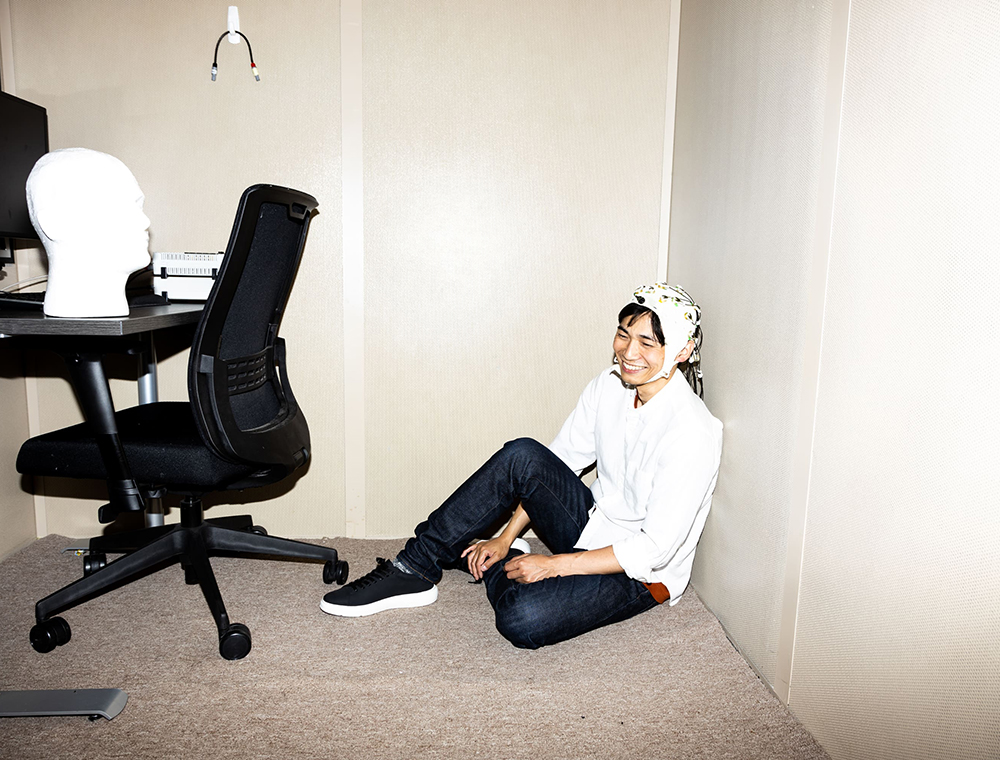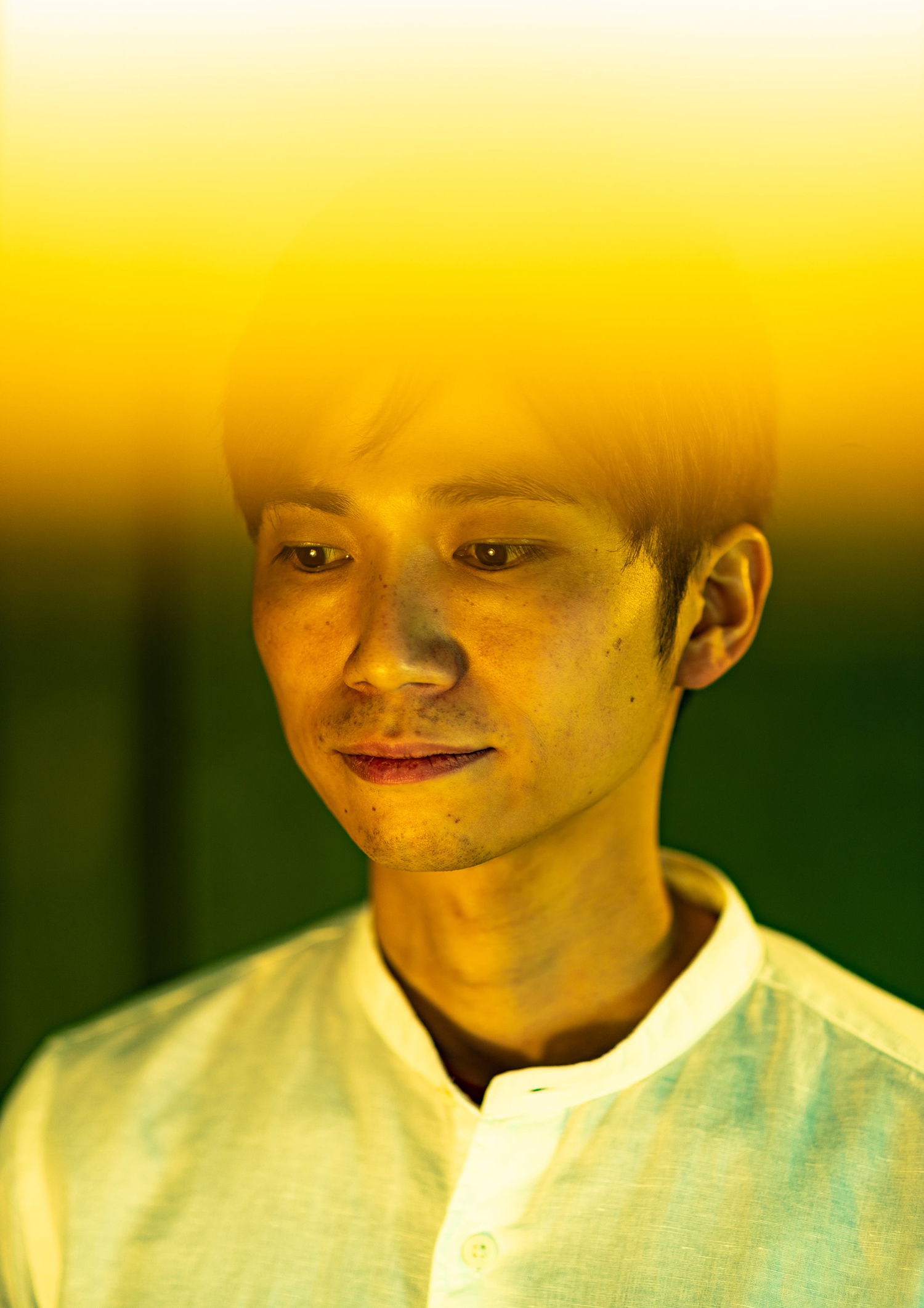Keisuke Fukuda sometimes receives texts from his wife with photos of things in their kitchen. A large bowl on a top shelf, for example, or a platter in a lower cabinet. They are not-so-gentle reminders about the items’ proper homes, intended for reference when he is emptying the dishwasher and forgetting – once again – where they go.
For a psychology professor who studies memory and attention, this could be embarrassing. But for Fukuda, it’s inspiring. “The mundane moments where my memory fails drive me. They reveal again and again that, while the mind may be a highly efficient information processor, it’s far from perfect. But I believe there are ways we can make it better.”
Fukuda is an assistant professor in U of T Mississauga’s psychology department, where his research focuses on determining the brain mechanisms underlying memory and their behavioural outcomes – he calls this “reading the mind.” With this insight, he aims to “lead the mind” to improved functioning with techniques designed to optimize our memory.
In his lab, he employs two main methods to explore the frequent disconnect between what information our brains are in fact storing and retrieving and what we are trying to remember. With electroencephalogram (EEG) technology, Fukuda monitors electrical activity generated by the brain while research participants complete memory tasks. “This shows us the neural operations that lead to success or failure at encoding and retrieving information,” he says. The other method tests the memories of large numbers of participants to measure individual differences in our ability to hold recent and remote memories in mind while we compare them to what we are currently seeing. We naturally vary in this ability – known as visual working memory – with some people able to maintain three or four objects in mind, and some just one or two at any given moment.
One of the most common visual working memory tasks used in the Fukuda lab – and others worldwide – is the change detection test. In it, participants are briefly shown several simple items on a screen before they disappear. After a second or so, just one item reappears in a location previously occupied by an item in the original series, and the participants must indicate whether it’s the same as or different from the original. Using a series of these tests, researchers can estimate an individual’s visual working memory capacity.
Back in high school in Japan, Fukuda felt like he had very little innate aptitude for memorizing – especially when he thought a subject was boring. One year, a dreaded history exam full of minutiae was looming, and he was desperate. “I was a lazy student and wanted to know how I could make the minimum effort to pass the course,” he says. “It struck me that, if I knew how my memory operated, I could get the most out of it.” Since his parents made the internet off limits to him at home, he went to the local bookstore and began reading psychology books at random.
What he discovered in this informal investigation was life-changing in a couple of ways. First, he realized he was deeply fascinated by the science of memory. Second, he picked up some valuable study tips based on two principles of memory: the testing and spacing effects. “The best way to retain information is to test your memory on it repeatedly, and to spread out the testing over time,” he says. “When I tried this, I got good results.” Not only did he pass the hated history class, he decided to pursue a psychology degree.
Fukuda completed his undergraduate and graduate degrees in the U.S. before joining UTM in 2016, where his work has built on existing knowledge about optimizing memory. In one study, partly inspired by his experience learning English, he demonstrated that focusing on large amounts of information for a short time is more effective than dwelling on smaller amounts of information for a long time. “Instead of studying 10 new English words each day in the hopes of learning 70 words per week, I looked at all 70 words seven days in a row,” he says. “When you see something over and over and start recognizing it, you’re practising retrieving that information. Repeated retrieval makes it more accessible later.” Knowing how many hours he wasted studying the wrong way, he takes every opportunity now to share evidence-based practices like this with his students. If he had his wish, kids would learn them in elementary school.

Fukuda initially chose U of T because of its reputation for innovative memory research. As a scientist who relies on human subjects, a diverse population to draw from was an unexpected bonus. “I was convinced that I’d landed at the wrong airport when I came for my job interview,” he says, noting that he completed his undergraduate and graduate degrees in Oregon – a state that ranks low in racial diversity. “I was fully amazed by Toronto.” Diversity is especially important when it comes to probing a concept called ‘memorability.’
Memorability refers to the intrinsic properties of a thing that determine how easy or hard it is to remember. The factors that make something memorable include its distinctiveness and its relative importance to the observer. Until recently, memorability was thought to be fairly consistent across individuals and even quantifiable, says Fukuda. “Now, though, psychologists are realizing that memorability may be culturally specific and influenced by shared values and knowledge. It’s fascinating and something I hope to examine one day.”
So far, his lab has studied how age-related cultural differences affect what people remember. “We presented pictures of various gaming consoles to young people, for example, and they had no trouble remembering them later,” says Fukuda. “Older adults had much more difficulty, though they had great memory for images of old-fashioned radios.”
One area where memory exposes its fallibility in people of all ages is eyewitness testimony. When we see things that are physically similar to the content in our visual working memory, those memories can become biased toward the new input. For example, when you are looking for your friend in a crowd, you hold their image in your visual working memory. “Whenever you think, ‘Oh, that person looks like my friend,’ this changes your memory of your friend,” says Fukuda. It’s called similarity-induced memory bias, which means certain contexts and suggestive information can make our memories more vulnerable to distortion.
Fukuda’s lab has shown that when people are asked to make deliberate comparisons between new visual information and objects held in mind, the memory bias is larger than if they see the new information but are instructed to ignore it. This is important when someone views a lineup of potential suspects and compares it to their memory of a criminal, which he says could contribute to the frequency of false identifications. In other research, he found that these distortions increase with longer delays between first encoding the memory and making the comparisons, and the bias can persist after the comparisons are over.
We are not aware of these alterations in our working memory as they occur. That’s why Fukuda is so keen about the potential for augmenting our memory skills through real-time feedback on cognitive processing. “With the EEG, we can let people know exactly when their brain waves indicate they’re doing a good job of encoding and recalling information,” he says. “Feedback changes behaviour. Maybe by learning to recognize when our brain is working efficiently we can become better controllers of our memory abilities.”
He even half-jokingly suggests that one day students may wear EEG caps to track and enhance the quality of their learning – which would be a far cry from scanning psychology textbooks for tricks. “You shouldn’t be in science if you’re not optimistic and excited about dreams like this,” he says. “The mind is capable of incredible things.”
Keisuke Fukuda’s Top 5 Memory Tips
- Test your memory often on the material you want to remember
- Don’t cram. Space out your memorization over time
- Focus on repeated, if brief, exposure to info you want to remember
- Take breaks! Let your mind rest for at least 15 minutes a few times a day
- Use digital reminders, alarms, voice assistants and photo aids
Recent Posts
People Worry That AI Will Replace Workers. But It Could Make Some More Productive
These scholars say artificial intelligence could help reduce income inequality
A Sentinel for Global Health
AI is promising a better – and faster – way to monitor the world for emerging medical threats
The Age of Deception
AI is generating a disinformation arms race. The window to stop it may be closing






One Response to “ Reading the Mind ”
I read the article with a great interest. Psychology has substantially changed since I studied it as an undergraduate at Hokkaido University. I went on to graduate studies in psychometrics and mathematics at the University of North Carolina in the 1960s. Your article reminded me of my younger days.